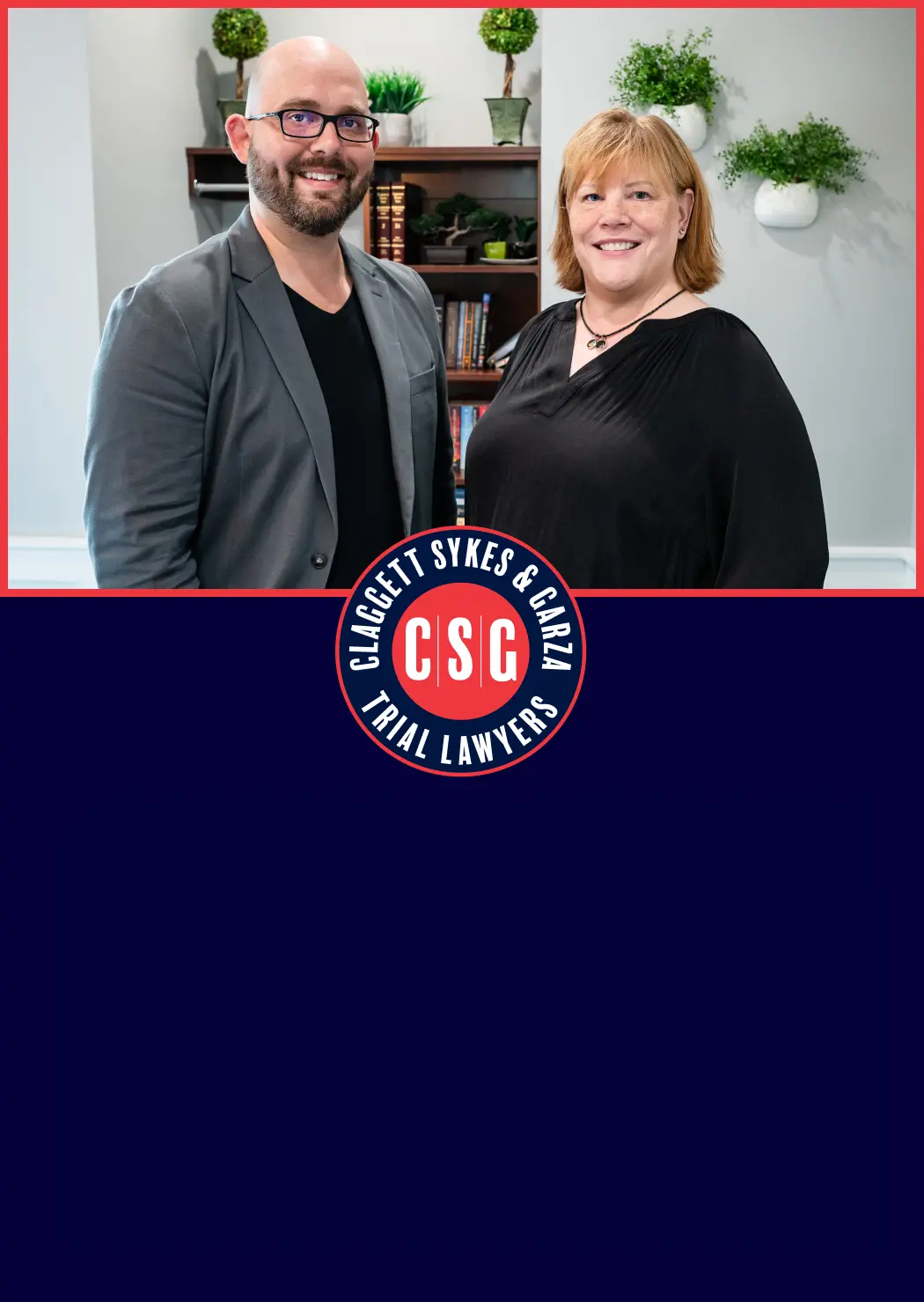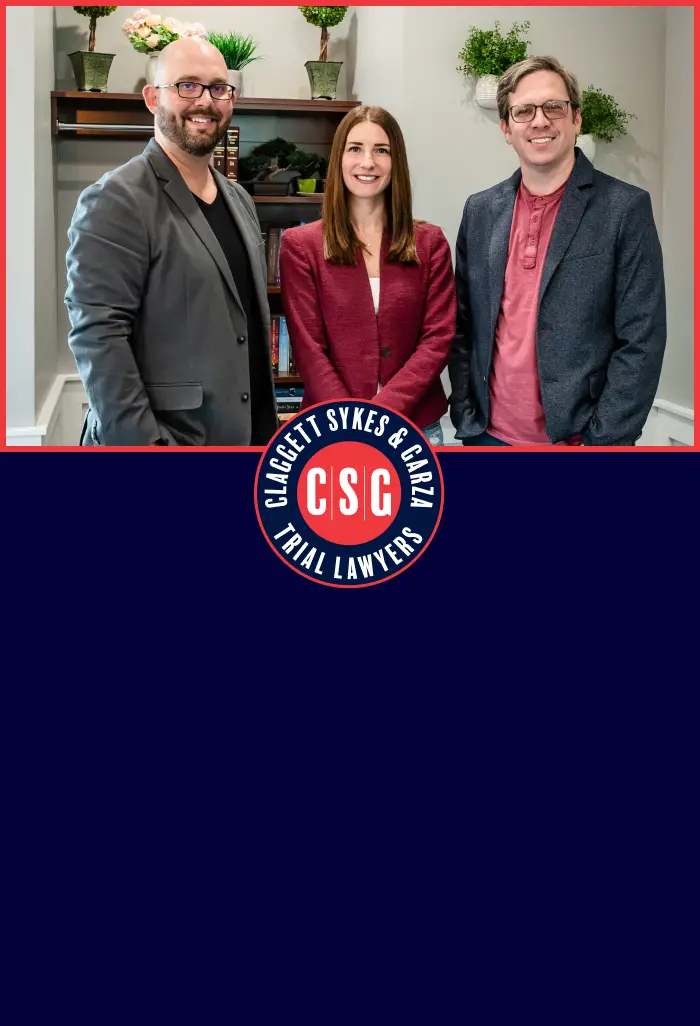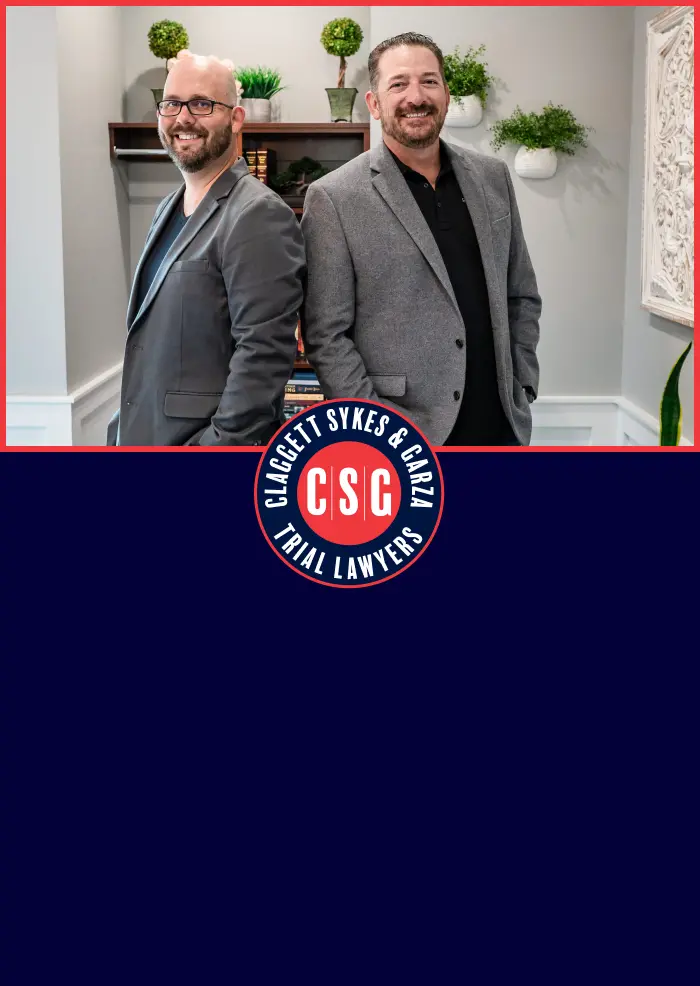When surgical negligence causes preventable harm, Connecticut patients need experienced legal advocates. Our Connecticut surgical procedure errors lawyers at Claggett, Sykes & Garza Trial Lawyers have secured record-breaking verdicts, including the largest bodily injury award in Connecticut history. We hold negligent healthcare providers accountable for surgical mistakes.
Understanding Surgical Procedure Errors in Connecticut
Surgical procedure errors represent some of the most devastating forms of medical malpractice, often resulting in permanent disability, prolonged suffering, or wrongful death. Unlike inherent surgical risks that patients consent to, surgical errors occur when healthcare providers fail to meet the accepted standard of care during medical procedures.
In Connecticut, surgical errors affect hundreds of patients annually across hospitals, outpatient surgical centers, and medical facilities throughout the state. These preventable mistakes can occur during any type of surgery, from routine procedures to complex operations, and often result from inadequate preparation, poor communication, or negligent execution.
Connecticut law recognizes that patients have the right to receive competent medical care that meets established professional standards. When surgeons, anesthesiologists, nurses, or other medical staff deviate from these standards, they can be held legally responsible for the resulting harm according to Connecticut Department of Public Health regulations.

Get the Compensation You Deserve. Our Experienced Lawyers Can Help.
Why Choose Claggett, Sykes & Garza Trial Lawyers for Your Surgical Error Case?
Our Connecticut surgical procedure errors lawyers bring extensive experience, proven results, and unwavering commitment to clients facing the devastating consequences of medical negligence. We understand the complex medical and legal issues involved in surgical error cases and have the resources necessary to take on major hospitals and healthcare systems.
Record-Breaking Verdicts in CT
Our firm has secured record-breaking verdicts and settlements for clients, including the largest bodily injury verdict in Connecticut history at $100 million. This landmark case demonstrates our ability to handle complex medical malpractice cases and achieve exceptional results for clients who have suffered catastrophic injuries.
We employ a comprehensive approach to case preparation that includes thorough medical record review, consultation with leading medical experts, and innovative use of technology to present compelling evidence. Our “Big Data” approach to trial preparation helps us identify key issues and develop persuasive arguments that resonate with judges and juries.
Medical Malpractice Laws for Surgical Errors
Connecticut law requires a reasonable inquiry and certificate before filing medical malpractice lawsuits. This requirement ensures that cases have merit before entering the court system and that qualified medical professionals have reviewed the case according to Connecticut General Statutes.
Statute of Limitations in Connecticut
Connecticut General Statutes §52-584 establishes specific requirements for medical malpractice cases, including surgical errors. Patients have two years from the date they discovered or reasonably should have discovered the error to file a lawsuit. This statute of limitations protects both patients’ rights to seek justice and healthcare providers from indefinite liability exposure.
Are There Damage Caps for Compensation in CT?
No. Connecticut does not impose damage caps on medical malpractice awards, allowing juries to determine appropriate compensation based on the full extent of a patient’s injuries and losses. This approach ensures that victims of surgical errors can receive fair compensation for their suffering and future needs.

Let Us Fight for Your Rights and Maximize Your Compensation.
Common Types of Surgical Procedure Errors We Handle
Our Connecticut surgical procedure errors lawyers have extensive experience handling various types of preventable surgical mistakes. Each type of error can result in serious complications, additional medical procedures, and long-term health consequences for patients and their families.
Wrong-Site Surgery
Wrong-site surgery occurs when medical professionals operate on the incorrect body part, the wrong side of the body, or the wrong patient entirely. These errors violate basic safety protocols and represent clear departures from accepted medical standards established by The Joint Commission.
Connecticut hospitals have implemented verification procedures to prevent wrong-site surgery, including patient identification protocols, surgical site marking, and timeout procedures before incision. When these safeguards fail due to negligence, patients suffer unnecessary trauma and may require additional corrective procedures.
Common wrong-site surgery cases include operating on the wrong kidney, amputating the incorrect limb, or performing procedures on the wrong spinal level. These errors often result from inadequate communication, failure to verify patient identity, or rushing through pre-operative protocols according to patient safety guidelines.
Retained Surgical Instruments
Retained surgical instruments represent another serious category of surgical errors where medical tools, sponges, or other materials are accidentally left inside patients after procedures. These foreign objects can cause infections, internal injuries, and require additional surgeries for removal.
Connecticut hospitals use counting procedures to track surgical instruments and materials throughout operations. When staff fail to properly count items or ignore discrepancies, patients may suffer serious complications from retained objects. Symptoms may not appear immediately, making these cases particularly challenging for patients who experience delayed complications.
Post-operative infections, chronic pain, and organ damage frequently result from retained surgical instruments. Patients may require multiple corrective surgeries, extended hospital stays, and long-term medical treatment to address complications from these preventable errors. Our Connecticut medical malpractice attorneys have successfully handled numerous retained object cases.
Anesthesia Errors During Surgery
Anesthesia errors during surgical procedures can result in catastrophic injuries or death. These errors may involve administering incorrect dosages, failing to monitor patients properly, or neglecting to account for patient allergies and medical conditions.
Anesthesiologists and nurse anesthetists must carefully calculate medication dosages based on a patient’s weight, medical history, and the specific requirements of the procedure. Errors in calculation or administration can cause patients to experience awareness during surgery, respiratory depression, cardiac complications, or brain damage from oxygen deprivation.
Proper monitoring throughout surgical procedures is essential for patient safety according to American Society of Anesthesiologists guidelines. When anesthesia providers fail to recognize and respond to changes in patient vital signs, preventable complications can occur, resulting in permanent injury or death.

Experienced Personal Injury Lawyers Ready to Assist You.
Proving Medical Malpractice in Connecticut Surgical Error Cases
Successfully proving medical malpractice in Connecticut surgical error cases requires establishing four essential elements:
- duty of care
- breach of duty
- causation
- damages
Our experienced legal team understands how to build compelling cases that clearly demonstrate each element.
Duty of Care
Healthcare providers owe patients a duty to provide care that meets accepted medical standards. This duty exists whenever a doctor-patient relationship is established, creating legal obligations for competent treatment. Surgeons, anesthesiologists, nurses, and hospitals all have specific duties to patients undergoing surgical procedures.
Breach of Duty
Proving breach of duty requires demonstrating that healthcare providers failed to meet the standard of care that competent medical professionals would provide under similar circumstances. This often involves comparing the actual care provided to established medical protocols, professional guidelines, and expert testimony about appropriate treatment.
Causation
Causation connects the healthcare provider’s negligence to the patient’s injuries. We must show that the surgical error directly caused or significantly contributed to the patient’s harm. This element can be complex when patients have pre-existing conditions or multiple medical issues.
Damages
Finally, we must document the damages resulting from the surgical error, including medical expenses, lost wages, pain and suffering, and future care needs. Comprehensive damage calculations ensure that patients receive fair compensation for all losses related to the surgical error.
Working with Medical Experts
Medical expert witnesses play crucial roles in Connecticut surgical error cases. These qualified professionals review medical records, analyze the care provided, and offer opinions about whether healthcare providers met accepted standards of care.
Our legal team works with board-certified surgeons, anesthesiologists, nurses, and other medical professionals who can explain complex medical issues to judges and juries. Expert witnesses help establish what should have happened during the surgical procedure and how the actual care deviated from accepted standards.
Expert Testimony
Expert testimony strengthens cases by providing authoritative opinions about causation, the extent of injuries, and future medical needs. These professionals help translate complex medical concepts into understandable terms for legal proceedings according to Federal Rules of Evidence.
Damages Available in Connecticut Surgical Error Cases
Connecticut law allows surgical error victims to recover both economic and non-economic damages. Economic damages include quantifiable financial losses such as medical expenses, lost wages, and future care costs. These damages compensate patients for the measurable financial impact of surgical errors.
Medical Expenses
Medical expenses often represent the largest component of economic damages in surgical error cases. Patients may require additional surgeries, extended hospital stays, rehabilitation services, and ongoing medical treatment to address complications from surgical errors. We work with medical professionals to calculate current and future medical costs accurately.
Lost Wages and Diminished Earning Capacity
Lost wages and diminished earning capacity represent another significant category of economic damages. Surgical errors may prevent patients from returning to work temporarily or permanently, resulting in substantial income losses. We analyze employment records, career trajectories, and expert economic testimony to determine appropriate compensation for lost earnings.
Non-Economic Damages
Non-economic damages compensate patients for pain and suffering, emotional distress, loss of enjoyment of life, and other intangible losses. Connecticut does not cap non-economic damages in medical malpractice cases, allowing juries to determine appropriate compensation based on the severity of injuries and their impact on patients’ lives.
Long-Term Care Considerations
Catastrophic surgical errors often require extensive long-term care planning and support. Patients may need ongoing medical treatment, rehabilitation services, home modifications, and assistive devices to manage their injuries and maintain quality of life.
We Help You Develop a Comprehensive Care Plan
Our legal team works with life care planners, medical professionals, and economists to develop comprehensive care plans that address patients’ current and future needs. These plans ensure that settlement negotiations and jury awards account for the full cost of long-term care and support services.
Future Medical Needs
Calculating future medical needs requires careful analysis of the patient’s condition, prognosis, and available treatment options. We consider factors such as inflation, advances in medical technology, and changes in care requirements over time to ensure adequate compensation for future expenses.
Meet Our Legal Team
Jonathan ‘Jak’ Kocienda leads our medical malpractice practice with over 22 years of specialized experience in healthcare negligence cases. His deep understanding of medical procedures, hospital protocols, and healthcare standards enables him to identify critical issues and build strong cases for surgical error victims.
Andrew Garza brings exceptional trial advocacy skills and national recognition to our surgical error cases. His credentials include selection as the 2022 Keenan Trial Institute Trial Lawyer of the Year and recognition in Best Lawyers in America for Personal Injury Litigation. Andrew’s courtroom expertise and strategic thinking help maximize results for clients.
Our team approach ensures that each surgical error case receives comprehensive attention from multiple experienced attorneys. We collaborate closely to develop case strategies, prepare for trial, and negotiate favorable settlements that address our clients’ current and future needs.
Legal Awards & Recognition
Our attorneys have received numerous awards and recognition for their excellence in legal advocacy and client representation. Andrew Garza was named the 2022 Keenan Trial Institute Trial Lawyer of the Year, recognizing his outstanding trial advocacy skills and commitment to justice for injury victims.
In 2023, Andrew received the New England Legal Awards Lawyer of the Year, highlighting his exceptional legal achievements and professional excellence. He has been selected for Super Lawyers recognition from 2016-2023, demonstrating consistent peer recognition for his legal abilities and ethical standards.
Andrew’s inclusion in Best Lawyers in America 2024 for Personal Injury Litigation – Plaintiffs reflects his national reputation for excellence in representing injury victims. This peer-reviewed recognition places him among the top personal injury attorneys in the country.
Sean Claggett maintains an AV Preeminent® Rating from Martindale-Hubbell, the highest peer review rating for legal ability and ethical standards. His 10.0 “Superb” Avvo rating reflects exceptional client satisfaction and professional achievement.
Our attorneys are members of the Multi-Million Dollar Advocates Forum, recognizing lawyers who have achieved multi-million dollar verdicts and settlements for their clients. This exclusive organization includes less than 1% of attorneys nationwide.
Contact Our Surgical Procedure Error Lawyers Today
If you or a loved one has suffered harm from a surgical procedure error in Connecticut, time is critical. Our experienced legal team is ready to evaluate your case and fight for the compensation you deserve. We offer free consultations to discuss your situation and explain your legal options.
Our Connecticut surgical procedure errors lawyers work on a contingency fee basis, meaning you pay no attorney fees unless we secure a favorable outcome for your case. This arrangement allows you to pursue justice without financial risk while we handle the complex legal and medical issues involved in your case.
We maintain our office in Farmington to serve clients throughout Connecticut. Our attorneys are available 24/7 for serious cases and understand the urgency involved in surgical error situations. Contact us today at 860-471-8333 to speak with our experienced legal team.
Don’t let the statute of limitations expire on your surgical error case. Call now to schedule your free consultation and learn how we can help you hold negligent healthcare providers accountable for their mistakes. Your recovery and future depend on taking action today.
Frequently Asked Questions
What is the statute of limitations for surgical error cases in Connecticut?
Connecticut has a 2-year statute of limitations for medical malpractice cases, including surgical errors. The clock typically starts from when you discovered or reasonably should have discovered the error and resulting injury. However, there are exceptions and nuances to this rule, making it essential to consult with an experienced attorney promptly after discovering a potential surgical error.
Do I need to prove the surgeon intended to cause harm?
No, surgical error cases are based on negligence, not intent. You must prove the surgeon failed to meet the accepted standard of care, not that they intended to cause harm. Medical malpractice focuses on whether healthcare providers acted reasonably under the circumstances, regardless of their intentions.
What if the hospital says the error was unavoidable?
Not all surgical complications are malpractice. We investigate whether proper protocols were followed, if the error was preventable, and whether it deviated from accepted medical standards. Hospitals may claim complications were unavoidable, but thorough investigation often reveals negligent practices or protocol violations that contributed to patient harm.
How long do surgical error cases typically take in Connecticut?
Connecticut requires a reasonable inquiry before filing medical malpractice cases. Once filed, cases generally take 1-3 years to resolve, depending on complexity and whether they go to trial. Complex cases involving catastrophic injuries or multiple defendants may take longer to reach a solution.
What compensation can I receive for a surgical error?
Connecticut allows recovery for medical expenses, lost wages, future care costs, pain and suffering, and loss of enjoyment of life. The amount depends on the severity of your injuries and their impact on your life. Connecticut does not cap damages in medical malpractice cases, allowing for full compensation based on actual losses and suffering.
Can I sue both the surgeon and the hospital?
Yes, both individual healthcare providers and institutions can be held liable for surgical errors. Hospitals may be responsible for inadequate policies, poor training, or negligent credentialing. Multiple parties may share responsibility for surgical errors, including surgeons, anesthesiologists, nurses, and healthcare facilities.

